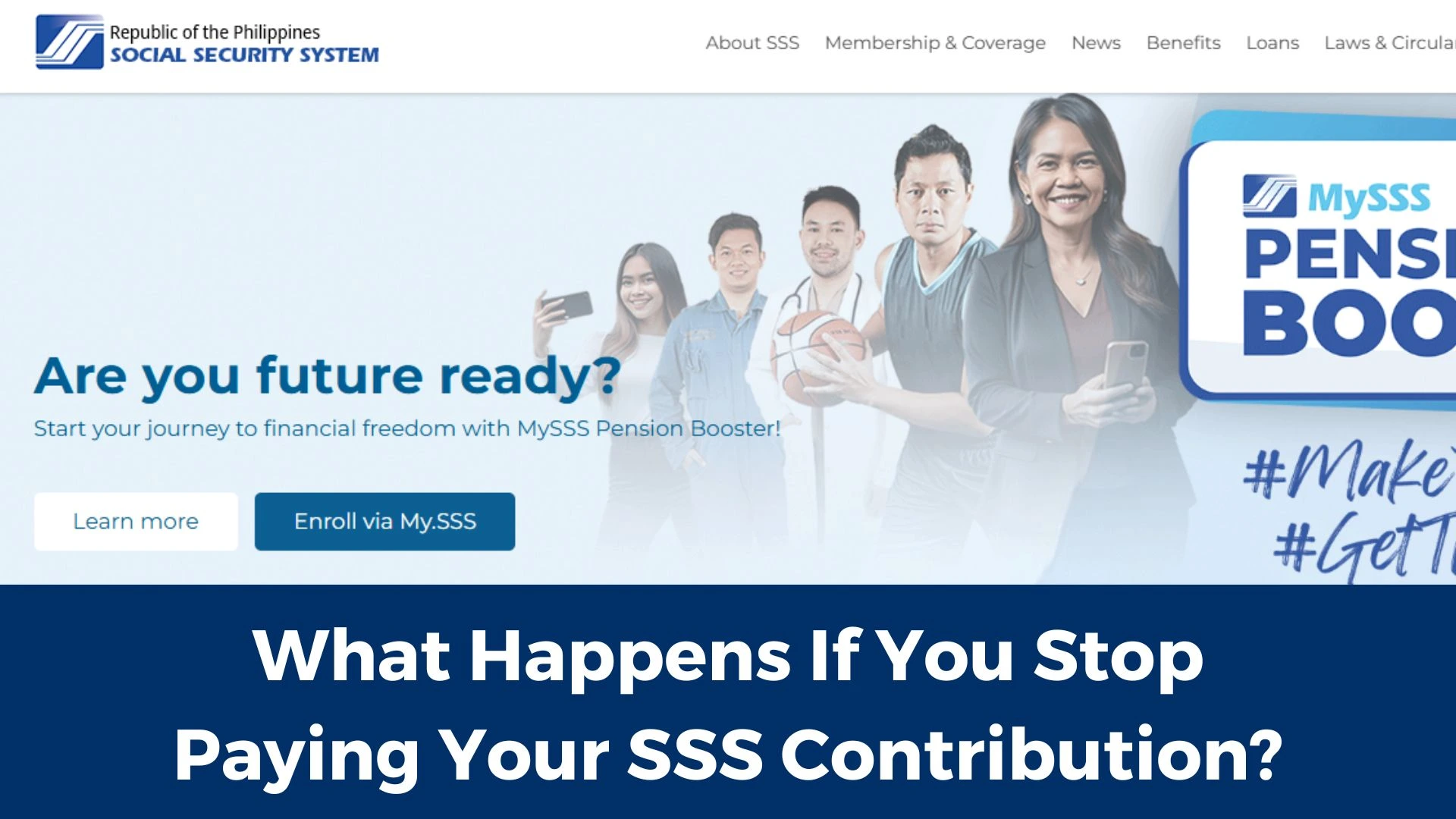If you’re a freelancer, self-employed, working abroad, or between jobs, you might be wondering:
What happens if I stop paying my SSS contributions?
It’s an important question because not paying for even a few months can affect your future benefits. This article explains what’s at risk, how it impacts your retirement and emergency benefits, and what you can do to fix it.
Why SSS Contributions Are Important
Your monthly SSS contributions don’t just meet government requirements, they help you in times of need. They cover:
- Retirement pension for your senior years. This is important if you do not have any other savings for your retirement.
- Maternity and sickness benefits when you can’t work. As a mom, this benefit is really helpful for me. Here’s a guide on how to claim your SSS maternity benefits.
- Disability or death benefits for you or your family.
- Loans during emergencies (e.g., salary, calamity, educational). Yes you can still avail of loans as a voluntary member.
What Happens If You Stop Paying?
You can actually think of it as your backup plan. If you stop paying, you could lose access to all these.
So, what actually happens if you stop paying?
1. You May Lose Access to Benefits
SSS benefits are only given to active members. If you’re not regularly paying:
- You can’t claim maternity, sickness, or disability benefits.
- Your family might not receive death or funeral claims.
- You won’t qualify for loans, which usually require at least 6 to 36 recent contributions.
Even skipping one year can affect your eligibility.
2. Lower (or No) Retirement Pension
To get a monthly pension, you need at least 120 monthly contributions (10 years). If you don’t reach this, you might get a one-time payout instead of a monthly pension or your pension will be lower since it’s based on your total contributions and salary credit.
3. You Can’t Backpay Missed Months
If you’re a voluntary member, self-employed, or OFW, SSS does not allow back payments. Missed months stay on your record forever.
4. You Lose Loan Privileges
SSS loans require recent and regular payments. If you’re inactive, you’ll miss out on financial help when you need it most. If you think you’re eligible for a loan, here’s our guide on how you can apply for a loan.
5. No Guarantee of Condonation Programs
Sometimes SSS offers condonation programs to help members settle unpaid loans (like the one in October 2022), but these aren’t always available. Relying on this later is risky.
6. You’ll Need to Reactivate First
If you need to avail of SSS benefits then you need to resume your payment but you still need to wait and continue paying for a couple of months before you will be eligible for some of the benefits.
What You Can Do If You’ve Stopped Paying
If you realized you stopped paying for a couple of months or years already. Don’t worry, you can always resume.
Here’s what you can do:
- Login to To your online SSS
By loging in to your SSS online account, you will be able to see all your contribution and missed contributions.
If you do not have an online account yet. You can just create an account first.
Once you’re able to login or create an account then you can resume your contribution.
To start your contribution, you can switch to voluntary member status. All you have to do is create a PRN and choose Voluntary Contribution then pay your contribution through SSS payment channels like GCash or even your bank like BPI for example. Here’s our guide on how you can pay your SSS contribution through GCash and BPI.
The contributions are posted real time as well so you can see it right away in your online account after you pay it.
- Ask About Any Active Condonation Program from SSS
If you see that you have unpaid loans. You can always contact SSS to ask about any of their condonation programs by visiting the nearest SSS office branch.
Conclusion
It may seem okay to stop paying SSS for now, especially during tough times, but it can hurt you in the long run.
Even small, regular contributions go a long way. The lowest amount you can pay is Php750 as a voluntary member.
Paying our contributions like the SSS contribution is important, they protect you and your family in case of emergencies and can secure your future retirement.
If you do not have any other savings, I think keeping your SSS active is one of the things you can continue to be able to at least have something for your retirement. Sometimes we don’t think about these but having something is still worth it in the long run.

